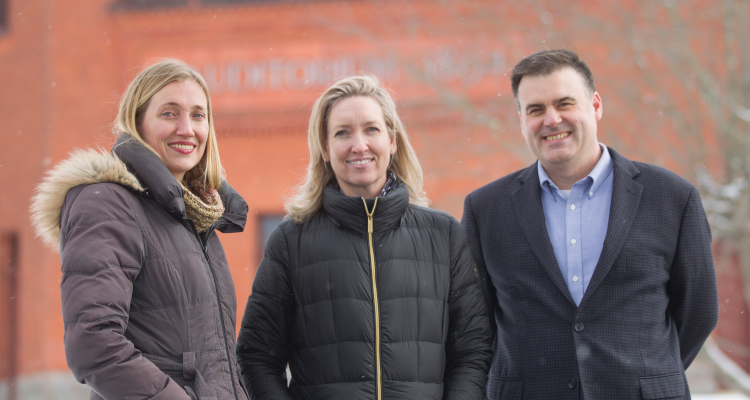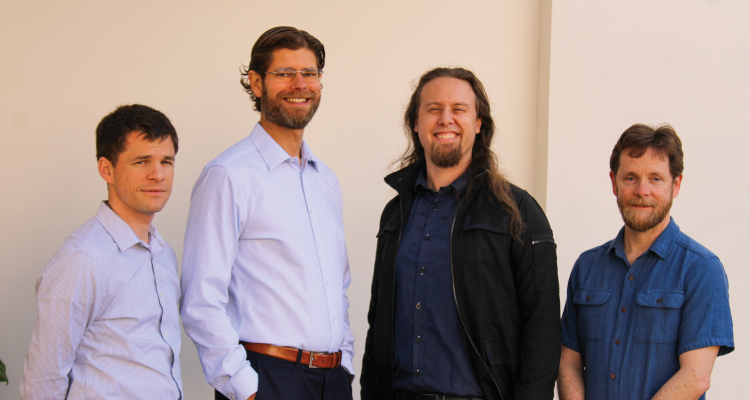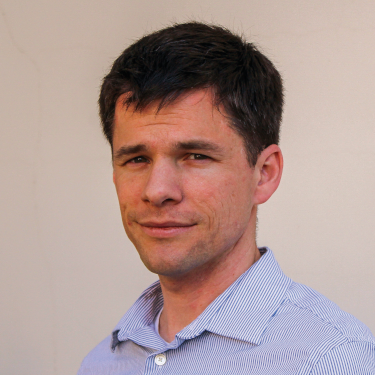- Home
-
About
 Fidelity & Excellence
Fidelity & ExcellenceThomas Aquinas College is unique among American colleges and universities, offering a faithfully Catholic education comprised entirely of the Great Books and classroom discussions.
-
A Liberating Education
 Truth Matters
Truth MattersTruth, and nothing less, sets men free; and because truth is both natural and supernatural, the College’s curriculum aims at both natural and divine wisdom.
-
A Catholic Life
 Under the Light of Faith
Under the Light of FaithThe intellectual tradition and moral teachings of the Catholic Church infuse the whole life of Thomas Aquinas College, illuminating the curriculum and the community alike.
-
Admission & Aid
 Is TAC Right for You?
Is TAC Right for You?Do you enjoy grappling with complex questions? Are you willing to engage in discussions about difficult concepts, with the truth as your ultimate goal?
-
Students & Parents
 Mind, Body & Spirit
Mind, Body & SpiritThere is always something to do at TAC — something worthwhile, something fulfilling, and something geared toward ever-greater spiritual and intellectual growth.
-
Alumni & Careers
 What Can You Do with a Liberal Education?
What Can You Do with a Liberal Education?Nothing speaks more to the versatility of the College’s academic program than the good that our alumni are doing throughout the Church and the world.
- Search
- Giving
Alumni in Tech: Graduates Demonstrate the Versatility of Catholic Liberal Education

“When I graduated from high school, I wanted to go into a STEM field,” recalls Dr. Jonathan Doylend (’96). “I wasn’t interested in Thomas Aquinas College, but my parents talked me into visiting — and I came away thinking, ‘I want this!’”
Fortunately for Dr. Doylend, choosing to pursue a Catholic liberal education did not mean sacrificing his dream of rising to the heights of science and technology. After graduating from the College, he went on to earn a doctorate in engineering physics, then to hold senior positions at Intel and Meta, “working on self-driving cars, lasers, quantum mechanics, photonics, and integrated optics.”
Dr. Doylend is no outlier. Numerous TAC alumni have gone on to flourish in diverse technical fields, including programming, data analytics, digital animation, and cybersecurity. Their success is living proof of an observation which Michael Ortner, founder of the technology firm Capterra, once made while visiting students on the College’s California campus. “The beautiful thing about the liberal arts is they feed into a couple of huge skills that are greatly needed,” he said, “particularly in the tech world.”
The connection is, admittedly, not obvious. After a half century of diluting their liberal arts programs beyond recognition, many conventional universities have recently begun scrapping them altogether. The most-cited explanation for this demise is lack of interest: With soaring tuition rates and dwindling job prospects, college students increasingly believe that their education must be tied to a specific vocational skill set — and that the modern economy has little use for ethicists, philosophers, and theologians.
Yet the alumni of Thomas Aquinas College, who spend four years immersed in nothing but the great works of Western civilization, have succeeded in the full range of professional endeavors, technology chief among them. How can this be?
Poised to Persevere — or Pivot
Not long after graduating from the College in 1994, Josh Hidley applied for a job in computer programming, despite having no prior experience. “I thought that when I didn’t get the job, I could at least ask the company, ‘What would I need to do to get a job like it?’” he says. “But it was the ’90s tech boom, when they were looking for anybody that could do anything.
To his surprise, Mr. Hidley got the job — and soon realized that, thanks to his quick thinking and broad background, he could do just about anything. That unlikely first step opened the door to a long and productive career in programming, which Mr. Hidley continues to ply as a senior software engineer at CJ Affiliates in Santa Barbara.
For many alumni, one of the most notable fruits of the College’s liberal education is breadth of mind. Contemplating, for instance, systematic theology alongside Newtonian physics and the plays of William Shakespeare engenders a habit of thinking across many disciplines. This habit is universally helpful, whether for pursuing a lifelong career goal or making a mid-career pivot.
Graduating 15 years after Mr. Hidley, Daina Andries (’09) earned a master’s in French literature, imagining a future academic career. “Technology was the furthest thing from what I thought I would get paid to do,” she laughs. Eventually, however, she reconsidered.
“In pursuing that degree, I discovered that I didn’t love teaching as much as I thought I would,” she admits. “So, I decided to get a second master’s in information science at the University of Michigan, which was a highly interdisciplinary school.” That decision soon led her to become first a data analyst and then an entrepreneur. She is the co-founder of Epidaurus Health, a data-analytics company serving the healthcare sector, where her interdisciplinary background continues to prove indispensable.
Breadth of mind makes graduates adaptive to changing circumstances, which is an asset for those who walk an unexpected path. Nathan Haggard (’99) worked at Showtime in New York City soon after graduating from the College, then spent some time running his own entertainment business before he joined Apple in 2006, selling computers to Hollywood studios. Before retiring earlier this year at the age of 45, he shifted through many areas of technology from video-editing software, to IT servers, to mobile devices, to team management.
“Eventually I led the Mac Solutions Architect Team working with Fortune 1000 companies to support thousands of Mac devices,” Mr. Haggard says. He credits the College for helping him successfully navigate these sometimes-dramatic transitions. “Seeing reality as it is, and not as we want it to be, is difficult for everyone, but at TAC we got a lot of practice,” he says. “Engaging in classroom discussions with the greatest ideas in history across a broad range of disciplines made it feel natural to navigate the ever-changing world of technology.”
Much like Mr. Haggard at Apple, Alexander Mason (’19) has repeatedly adapted to the fluid industry of Internet data centers. “On a screen, the Internet is virtual, but it has a massive physical footprint,” he says. As a technician for CoreSite, which owns and operates datacenters across the U.S., Mr. Mason deals directly with that footprint, handling temperature control for these considerably heat-dense facilities and manually connecting disparate physical data sources with fiber-optics.
In his line of work, success depends not only on mastering several existing areas of competence but in integrating new areas at breakneck speed. His liberal education, Mr. Mason finds, offers him an advantage. “TAC gave me the ability to learn something that I have never encountered before, much faster than anyone else,” he says. “When you walk into class as a student, your primary objective is not to say something intelligent about the readings, but just to understand what the heck is going on! Four years of that makes for some great development once you get into an industry.”

Educating Man as Man
Interdisciplinary thinking and mental flexibility render graduates highly employable, but that is not the purpose of Catholic liberal education. Indeed, in Thomas Aquinas College’s seminal document, A Proposal for the Fulfillment of Catholic Liberal Education, the school’s founders explicitly lamented that the American academy “has substituted vocational education for what was once an education for man simply as man.” In establishing the College, they were resisting the reduction of study to job training, hoping to restore the spirit of pursuing truth for its own sake. Breathing that spirit for four years shapes students profoundly, setting them apart from their technically trained peers in intangible ways.
Studying philosophy proved a boon for Jane (Neumayr ’98) Nemcova, chief operating officer of Veuu Incorporated, who for six years served as the managing director of Artificial Intelligence at Lionbridge Technologies, working in the intersection of AI and linguistics to pioneer automated translation. Colleagues and clients alike observed the residual influence of her philosophical background, and they did not hesitate to acknowledge it. “They would say, ‘It’s really the most interesting thing about you, that you studied Descartes, Aristotle, and Kant.’”
As an adjunct professor of AI for graduate students in language at the Middlebury Institute of International Studies in Monterey, California, Mrs. Nemcova now convinces budding linguists that they, like her, have much to offer a bewilderingly technical field. “I spent time building a curriculum from scratch to help the students better understand AI and its impacts on the job market for them,” she says. “Like students in the humanities and liberal arts, they feel vulnerable in the present market. I wanted to give them a framework and a leg up, as they are actually high-potential contributors in the AI world.”
The fruits of a liberal education are, of course, more than philosophical. The whole person is leavened through the earnest pursuit of truth — as even outsiders to the College have recognized. Nathan Dunlap (’12), animation director at Respawn Entertainment (a studio of industry giant Electronic Arts), considered studying animation in college, but a professional animation director cautioned him against that path. “He said, ‘You don’t want to be just an animator,’” Mr. Dunlap recalls.
On the far side of his time at the College and well into his career, Mr. Dunlap concurs with that advice. “If your life experience is too narrow, you won’t have the breadth or the depth to do something new. It would be like writing a book about a subject that you have only read about, but never experienced for yourself.”
The College’s aim of educating man as man tends to leave alumni with a permanent attitude of wonder at the world, allowing many to look with speculative eyes even at the intricacies of their highly technical fields. Mr. Dunlap, for instance, remains fascinated by the College’s unique approach to mathematics, which touches on the technical side of his work in animation. “I was ‘good at math’ in high school because I could memorize things,” he says. “But I’m much better now, because TAC focused on seeing why this or that formula came to be. I may not use that knowledge on a daily basis, but knowing it makes it easier to deal with esoteric ideas. I can easily do the research and understand that they come from something knowable.”
Dr. Doylend — the senior network engineer at Meta whose testimony begins this article — worked for years as an optical physicist, pioneering lasers and other technologies for Intel. But despite contributing to engineering marvels, he remains far more impressed by the marvel of light itself. “Studying Maxwell, Hertz, Huygens, and Einstein alongside Aristotle awakened a lifelong desire to delve deeply into the nature of light, which still seems to me to lie at the root of all our understanding of natural science.” This desire to make sense of the world is what drove him to Silicon Valley, and it sustains him in his work even now.
Kenneth May (’03), chief executive officer of Swift Chip, Inc., has lectured Fortune 500 companies and the United States military about cybersecurity and confronting hackers, but his fascination with the subject is inseparable from his background in classical philosophy. He brought those interests together in his 2020 book The Art of Hacking: Ancient Wisdom for Cybersecurity Defense. Consulting the ancients on this very modern problem, however, has raised numerous new and complex questions about both cybersecurity and philosophy. “It’s almost a shame I wasn’t about 10 years older when I attended the College,” he says. “I feel like I’d be able to appreciate it more.”
Shining a Light
The aim of Catholic liberal education, however, is ultimately to cultivate a love not merely for theoretical truth, but for the Truth Himself, Jesus Christ. If graduates leave with interdisciplinary competence and speculative zeal but do not glow with the love of God, they are “a noisy gong or a clanging cymbal” (1 Cor. 13:1). There are few places in greater need of an encounter with the love of God than the tech industry of the 21st century.
“Obviously Silicon Valley isn’t a terribly Catholic place,” says Mrs. Nemcova. “But, in another sense, it is. The people may not all be Catholic, but they are truth-seekers who are intellectually open to debate. If I bring a TAC mindset to discussion, many people who might be hostile on an individual level notice and think about what I say.” This openness to truth prepares the mind and heart for the Gospel; as Our Lord said to the thoughtful scribe, “You are not far from the kingdom of God” (Mark 12:34). Without Mrs. Nemcova’s presence, open minds in the tech industry might never get any closer.
Dr. Doylend has likewise observed the tech world’s passion for truth. “It’s inspiring that as you get toward the higher reaches of the industry, upholding a high ethical standard is unquestionably considered a good thing,” he says. “That’s something we as Catholics hold at our core. Our worldview fits nicely with the core of Silicon Valley’s, even though outwardly and externally it can seem to be at odds in some respects.”

— Nathan Dunlap (’12)
For those who are concerned that developing technologies will only accelerate the post-Christian tendencies of contemporary culture, the witness of the College’s alumni should come as a reassurance. At every level of the industry, there are men and women striving to remain faithful to the adventure of living the Gospel, even in the midst of their adventures in innovation. Mrs. Nemcova, Dr. Doylend, Mr. Dunlap, Mr. Haggard, Mr. Hidley, and Mr. May are all parents of many children; Dr. Doylend, Mr. Haggard, and Mr. Hidley have already sent daughters and sons to join the College’s next generation of students. They are active in their parishes and communities in many forms both large and small, from helping with scouting groups to, in Mr. Hidley’s case, “running one of the least essential but most appreciated parish ministries: doughnuts after Mass!”
Responsible Stewardship
In A Proposal for the Fulfillment of Catholic Liberal Education, the founders of Thomas Aquinas College observed that the rapid pace of technological advancements in the 1960s was not a historical accident. “Correlated with man’s hope in technology is his despair in knowing the truth about reality,” they wrote. But technology itself is not guilty by association with such skeptical despair. If the College’s mission is to counter modern trends by restoring confidence in the rationality of faith and the competence of reason, a sign of its success is not hostility to technological advances, but a purified attitude toward them.
Above all, the tech world needs a sense of responsible stewardship for the common good and the light of faith — both of which TAC alumni are uniquely poised to deliver. “There are very intelligent people in Silicon Valley who are capable of doing good things and who do good things,” says Mrs. Nemcova. “They are intellectual leaders who understand the world around them in a deep way.”
The pursuit of such understanding is crucial for integrating the moral and spiritual dimensions of emerging technologies. As Capterra founder Michael Ortner told TAC students during a career talk a few years ago, “Understanding the nature of humanity is only going to help you in building products that better serve man.”

